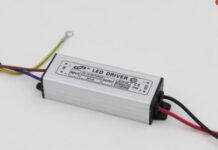The concept of smart homes has evolved from a luxury novelty to an essential aspect of modern living. As technological advancements continue to reshape our daily lives, smart home automation has emerged as a transformative force, empowering homeowners with unprecedented control over their living spaces while promoting sustainability and security.
Technology at the Core
At the heart of this evolution lies the seamless integration of artificial intelligence (AI), the Internet of Things (IoT), and machine learning. These technologies have revolutionized how we interact with our homes, enabling intelligent control of lighting, climate, security, and entertainment systems through smartphones or voice-activated assistants. This level of convenience resonates particularly well with Indian households, where the smart homes market is projected to reach $9.2 billion by 2028, growing at a CAGR of 9.14%.
Meeting the Evolving Demands of Modern Consumers
One of the driving factors behind the adoption of smart home technologies is the evolving preferences of today’s consumers. Modern buyers, especially in India, are becoming more technologically aware and seek solutions that enhance the value of their properties while improving their quality of life. Smart home automation has proven to meet these demands in several ways. For instance, automated lighting systems can be customized to change brightness or color based on time of day or personal preferences, helping to create the perfect ambiance. Similarly, smart thermostats can learn the household’s schedule, adjusting temperatures to ensure comfort while optimizing energy usage.
Energy Efficiency: A Key Advantage
Energy efficiency is another key benefit that resonates with environmentally conscious homeowners. By automating heating, cooling, and lighting based on factors like occupancy and time of day, smart home systems minimize energy wastage, lower utility bills, and reduce the carbon footprint. This not only supports a more sustainable lifestyle but also makes homeowners feel responsible and environmentally conscious.
Enhanced Security and Integration
Security features have become another critical factor driving smart home adoption in India. Advanced systems including smart locks, video doorbells, and surveillance cameras provide comprehensive protection and peace of mind. The integration of these security features with IP-based platforms enables seamless communication within housing societies, streamlining visitor and vendor management. Real-time alerts and remote monitoring capabilities ensure homeowners stay connected to their properties, while integration with local law enforcement adds an extra layer of security.
The Road Ahead
Looking ahead, the future of smart homes will be shaped by improved interoperability and advanced AI capabilities. Current challenges around device compatibility across different brands are expected to be addressed through unified platforms that enable seamless communication between all devices. AI will play an increasingly significant role, with systems becoming more sophisticated in understanding and anticipating user behaviors and preferences.
With their improved convenience, security, energy efficiency, and general well-being, smart homes are completely changing the way we live. With AI and IoT driving advancements that make our homes smarter and more responsive to our needs, the future of home automation appears bright. Smart home technology will elevate the idea of luxury living in India as the need for convenience increases and becomes a necessary component of all contemporary homes.

















